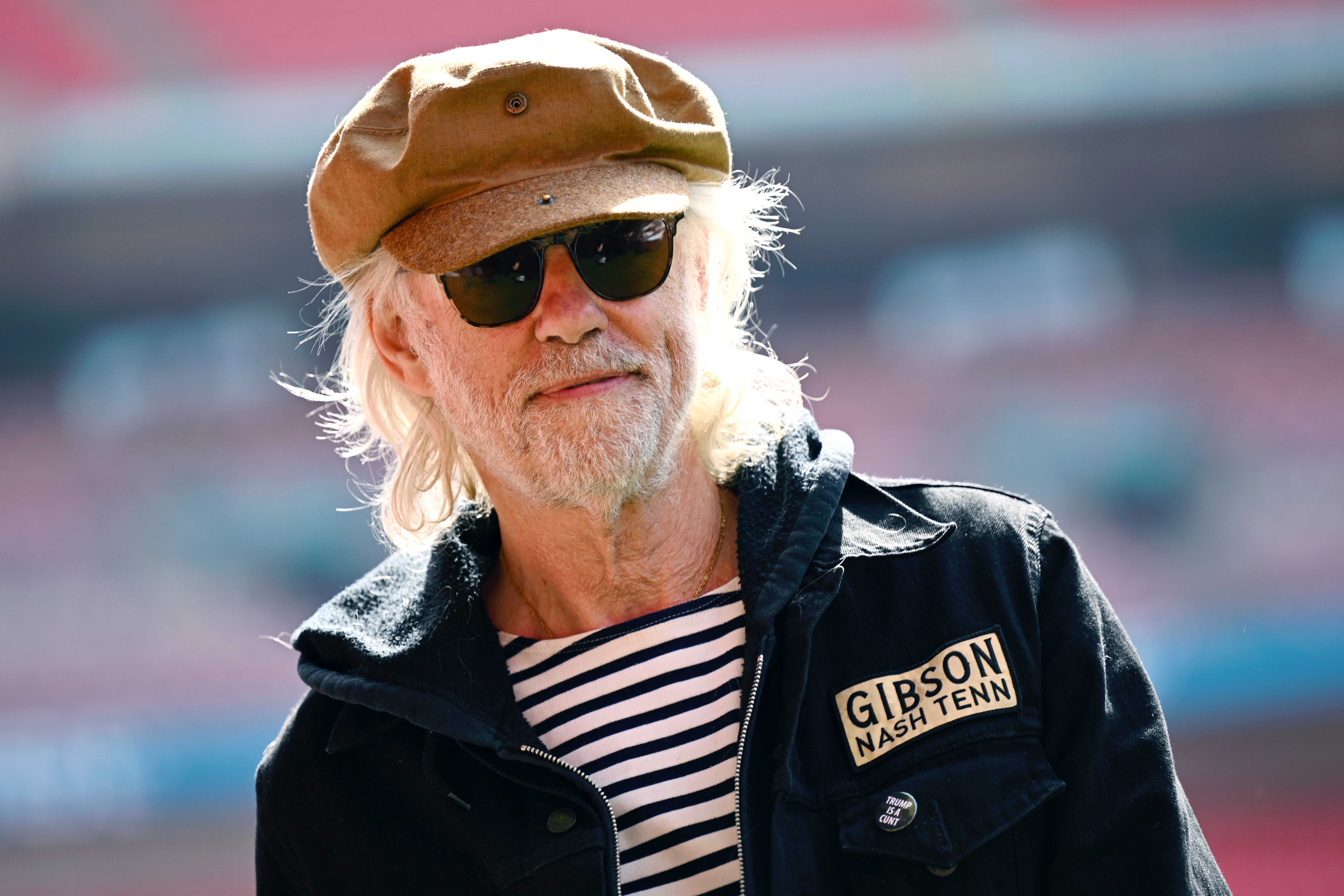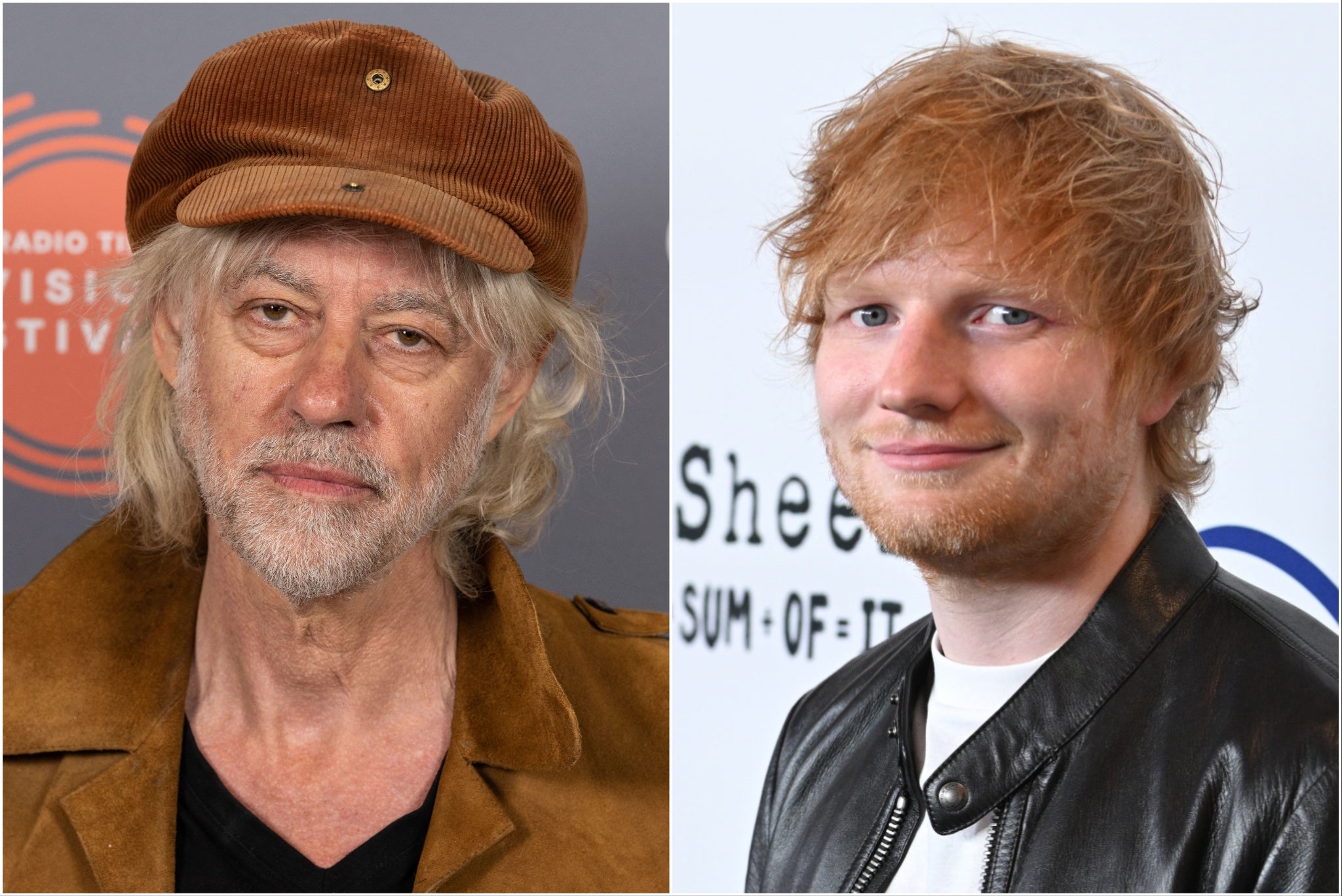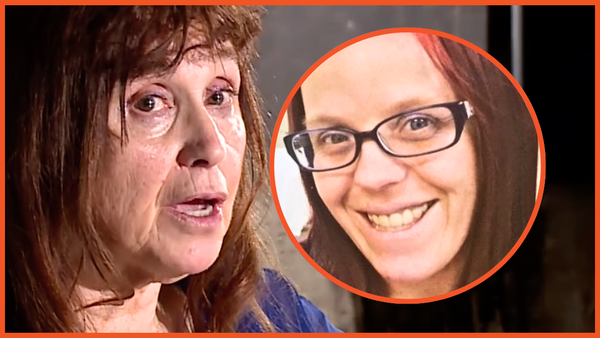Bob Geldof has rejected the idea that he is a “white saviour” due to his charity work in Africa.
The Irish musician and activist has found himself described as such since the Eighties, when he first began raising awareness of the famine in Ethiopia.
Geldof helped create “Do They Know It's Christmas?” Band Aid single and organised the 1985 Live Aid concerts, which raised funds for the cause.
The 73-year-old, however, takes issue with being called a “white saviour”. The term is attributed to white people helping non-white people for self-serving purposes, such as admiration from others.
“It comes from all that 1968 Derrida/Foucault language b****cks,” he told The Times, referring to French philosophers Jacques Derrida and Michel Foucault. “It’s nonsense.”
The Boomtown Rats frontman admitted, however, that he had initially “understood the argument”.
“I was a late 20th-century creature of the media,” he said. “I’m only in Africa because of television and some guy writing in The Times. The media came to me and said, ‘When are you going to Africa?’ I said, ‘What are you talking about?’ They said, ‘You have to go.’ And I said, ‘Why?’ And they said, ‘Because you’re the f***ing story’.”
He continued: “And I said, ‘I’m not the story. People are f***ing dying of no food in a world of surplus food, that’s the story.’ And they said, ‘We can’t keep doing the starving child, the starving mother, we’ve done it, Bob.’”
This is not the first time that Geldof has spoken out against the term. In 2024, Geldof dismissed a critical comment from the Guardian – which highlighted how some viewed Live Aid as reinforcing “a patronising image of Africa as a continent desperate for, and dependent on, western aid” – as “the greatest load of b****cks ever”.

“If there was a famine in Italy and someone reacts and they’re white, are they a white saviour? Are the only people allowed to react to an African famine Black?” he said in response.
“Are they the only ones allowed to do it? Because, wow, people in Africa are Black, so it can only be a Black person who does that. If there’s a famine where people are green, do you have to be green to do it? This is a nonsensical, absolutely dismissive argument. It is. I think it’s rubbish.”
Controversy erupted again later that year after a new version of “Do They Know It’s Christmas?” was released to celebrate its 40th anniversary. The updated song featured the vocals of Ed Sheeran, who claimed that he was not asked permission to use his voice on the track.
Posting to Instagram Stories, Sheeran shared a comment by Ghanaian-British musician Fuse ODG, who accused the campaign of “[dehumanising] Africans and [destroying] our pride and identity in the name of ‘charity’”.

“My approval wasn’t sought on this new Band Aid 40 release and had I had the choice I would have respectfully declined the use of my vocals,” Sheeran wrote.
“A decade on and my understanding of the narrative associated with this has changed, eloquently explained by [Fuse ODG]. This is just my personal stance. I’m hoping it’s a forward-looking one. Love to all.”
In response, Geldof defended the song’s legacy of fundraising to support those in need.
“This little pop song has kept millions of people alive,” he told The Sunday Times, listing the work the charity does including education and healthcare.
“Why would Band Aid scrap feeding thousands of children dependent on us for a meal? Why not keep doing that? Because of an abstract wealthy-world argument, regardless of its legitimacy?”
He continued: “No abstract theory regardless of how sincerely held should impede or distract from that hideous, concrete real-world reality. There are 600 million hungry people in the world – 300 million are in Africa. We wish it were other but it is not. We can help some of them. That’s what we will continue to do.”
Live 8 – 20 years on: how the Pink Floyd reunion topped a miraculous line-up
Bob Geldof told Freddie Mercury to ‘just play the hits’ before iconic Live Aid show
Olivia Rodrigo’s Glastonbury headliner was a killer show and therapy rolled into one
Sabrina Carpenter breaks album chart record knocking Ed Sheeran off top perch
Oasis reunion live: Tour kicks off tonight as fans pour into Cardiff
Oasis reunion: Rumoured setlist, dates and how to still get tickets







